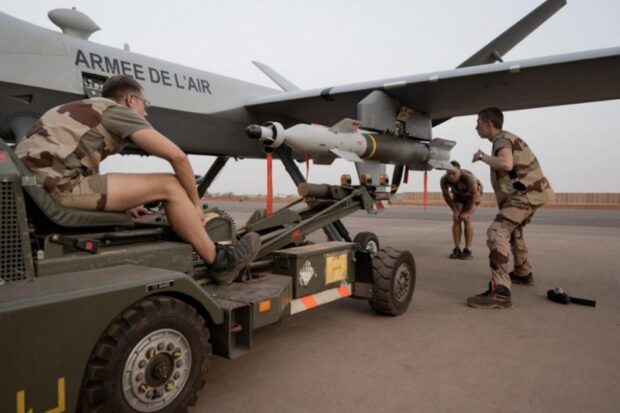The Dutch defence ministry will buy bombs and missiles worth between €100 million and €250 million to arm its MQ-9A Reaper drones, state secretary for defence Christophe van der Maat announced on Tuesday. The decision was taken by the government in The Hague and follows a general trend seen in other EU countries, though notably not yet in Belgium.
The Dutch air force (KLu) currently has four MQ-9A Reaper drones, which the military calls Remotely Piloted Aircraft Systems (RPAS). These were intended for reconnaissance missions as they are not armed. However, the air force has another four aircraft on order from the US company General Atomics Aeronautical Systems Inc (GA-ASI), which are expected in 2026.
The new drones will be armed, van der Maat said in a letter to the second chamber (the lower house of the Dutch parliament) on Tuesday. In addition, the four existing aircraft will be adapted to carry weaponry.
“When the Ministry of Defence started the project for the MQ-9 Reaper in 2011, there was no need to arm the aircraft,” the Ministry of Defence (MoD) said. “However, the threat picture has changed significantly since then. The aircraft must now be able to protect the safety of its own troops.”
The MoD aims to have the first ammunition in stock and ready for an initial weapons capability by 2025. Full operating capability is scheduled for 2028.
As noted in the announcement, while the four Reapers so far received by the Royal Netherlands Air Force (RNLAF) need to be upgraded to carry GBU-12 precision-guided bombs and AGM-114 Hellfire II air-to-surface missiles, the six that are scheduled to be delivered in 2026 do not.
The Dutch Ministry of Defence explained that the decision comes in light of an increased threat, with the geopolitical stakes having changed significantly since 2011 when the MoD launched the project to buy the first Reapers. The aircraft must now be able to protect its own troops.
Furthermore, it stated that in time-pressured operations, there is a “clear advantage” if the same drone that has collected information can strike immediately, rather than transferring that information to another weapon system.
The weapons will be acquired from the United States via the Foreign Military Sales (FMS) programme and are estimated to cost between EUR 100 million (USD 108 million) and EUR 250 million (USD 270 million).
Several countries using drones of the same category (Germany France, Italy, Spain, the Netherlands…) have already decided to arm them.
In Belgium, the question of arming the future MQ-9B SkyGuardian drones – a more advanced version of the Reaper – is a matter of debate. Four of the seven parties in the government coalition (the socialist and ecologist families) are opposed to it, while MP Jasper Pillen (Open Vld), has introduced a motion calling on the government to commission a study on the arming of the Belgian SkyGuardians, in the wake of a favourable opinion expressed by the Defence Staff.
Photo: Belga
Source: The Brussels Times; Janes

